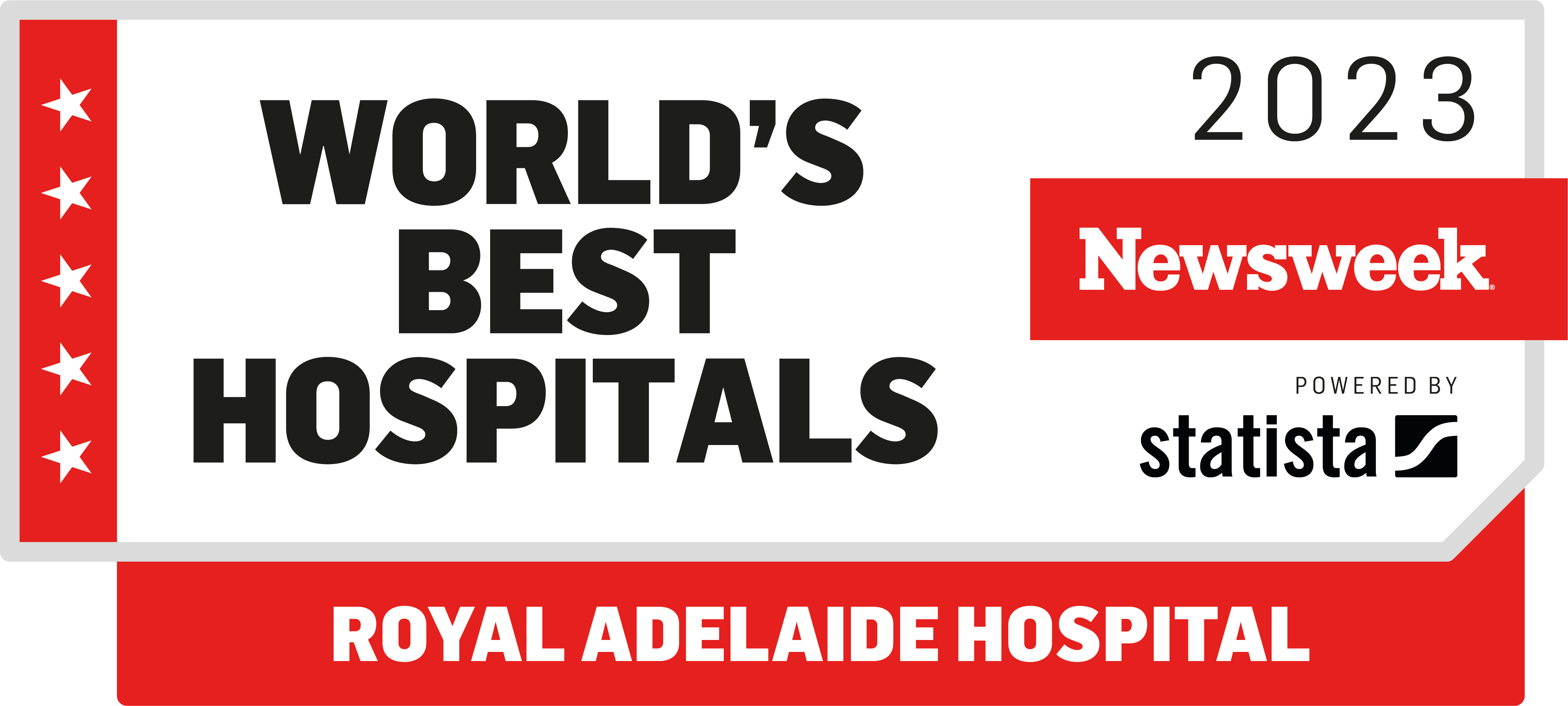
Building a culture of safety and excellence
A strong, professional accountability culture supports our strategic ambition to deliver world-class care to the community.
Central Adelaide Local health Network (CALHN) is partnering with the world-leading Vanderbilt University to implement the Promoting Professionalism Model.
The model is designed to improve:
- patient safety
- clinician engagement
- professional standards
CALHN becomes one of the first health networks in Australia to implement this world-class program.
Promoting professional accountability
CALHN is making our network a safer, more reliable and kinder workplace for our consumers and clinical workforce, enhancing our ability to deliver world-class care.
Our Professional Accountability Program is based on Vanderbilt University’s Promoting Professionalism Model and is an evidence-based, organisation-wide proactive approach to achieve the highest levels of safety and reliability.
At the core of this world-leading model is the ability to identify and respectfully share feedback with peers or co-workers of unprofessional behaviours that do not align with the values of the organisation, allowing self-reflection and personal alignment with CALHN’s culture of safety and excellence.
It gives CALHN the framework to define critical standards of safety and professionalism, and address behaviours that undermine them, while promoting the positive behaviours occurring within the network.
The peer-to-peer support model encourages a ‘cup of coffee’ conversation where peers – ideally at equal level of seniority and working within comparable specialities – have an informal conversation highlighting the lapse in professionalism, in a non-judgmental, non-confrontational way.
This model has been proven to be effective for improving individual’s behaviour following a peer intervention, improving workplace safety and patient outcomes.
CALHN values and behaviours
Our values, vision and ambitions give us direction for everything that happens across our network.
Collectively, they outline who we are, what we stand for, what our consumers and their families can expect from us, and what we can expect from each other. Our values and behaviours were defined by our workforce and are the core principles we are all expected to abide by. They reflect our network’s aspirations for appropriate workplace behaviour and will play a role in helping build a positive workplace culture.
The values and behaviours are our ‘being’ and help us remain true to our purpose – giving our patients the best possible care. To find out more about our values click here.
CALHN clinical compact
The CALHN Clinical Compact describes the shared expectations and agreed behaviours to support our ambition to be world class through our patient safety and quality care outcomes.
It outlines the professional standards that our clinicians including allied health, nursing and medical professionals have committed to and describes
Read the CALHN Clinical Compact here.
Testimonials about CALHN’s Professional Accountability Program
The CALHN Professional Accountability Program is an evidence-based approach featuring a series of tiered interventions to allow peer support in the workplace to promote psychological safety.
Because of the pressures of work, fatigue, and complexities of some of the work we do, or if we’re working for a long periods of time without nutrition combined with the pressures of our lives outside of work, in those moments sometimes the way we communicate may not be the best reflection of our professional selves.
We know environments which are permissive of unprofessional behaviour, rudeness and lack of civility are places where clinicians are much less likely to raise issues of professional standards and patient safety with their colleagues.
We need to make sure everybody who works in CALHN feels in a position to raise issues, advocate for patients and address that uncommon behaviour which is not reflective of our values, which is not reflective of the kind of professionals we want to be, which is not reflective of delivering the standard of care to which we are committed for our patients.
This happens in all healthcare organisations, as we know that bullying and harassment are a problem for both physicians and surgeons in training, but also healthcare workers more broadly.
People are much less likely to say to you, for example, ‘you didn’t follow the proper hand hygiene moments, you might need to wash your hands’ and just let that moment pass.
That is not excellent care, that’s not the best professional standard to which we all aspire, so in order to create the environment where people feel psychologically safe, to speak up safely, to be the best patient advocates they can be, and the best professionals they can be, we need an the accountability approach to ensure we promote psychological safety and professionalism.
If we witness unprofessional behaviour it is all of our responsibility to do something about it.
The idea of the peer support feedback model is you are providing that reflection of that experience back to the individual and that individual is taking the responsibility for what happens next.
If you don’t feel comfortable raising issues of patient safety, you will not have an opportunity to intervene to stop someone making a mistake. And if you can’t stop someone making a mistake, a patient may suffer an adverse outcome.
This approach was developed in a large academic health science system, similar to CALHN. It was applied across a large healthcare system, it has been tested, it is evidence-based, and it has led to reproducible statistically significant improvements and outcomes for patients and colleagues.
It is important to remember 95 % of individual clinicians who receive a report about them having a moment of unprofessional behaviour, never have a report again.
I attended the Promoting Professionalism Course run by the Vanderbilt University over a weekend in early 2021, with Josh Inglis who was at that time co-chairing the TMO forum with me.
The well-structured course was an eye-opening experience, as I brainstormed with executive director of well-known hospital, and Emeritus Professor, on strategies to address unprofessional behaviour, and that unprofessional behaviours in healthcare is as common as we expected.
Since the course, I have been more vigilant with my own professionalism and pay more attention to others behaviour as it is known that we often mirror someone’s behaviours when we function in a community.
If I come across inappropriate or unprofessional behaviour, I know that I do not have to call out on those behaviours right then and there if I don’t feel comfortable, as there are peer messengers who would be able to do that for us.
The communication skills and tools I have learnt from various professional accountability workshops have also helped me with my day-to-day communication with my colleagues. We practised how to address issues in a less intimidating and non-confrontational manner.
As a trainee, retribution is the biggest barrier to speaking out and unfortunately it is a culture that will be difficult to change. The ability to report anonymously provides us with psychological safety, so you don’t need to feel embarrassed or insecure about speaking up and wanting to ensure the well-being of our colleagues or even challenging the system to provide better patient care.
The implementation of the professional accountability program in CALHN has been anticipated by many. While not everyone will experience or witness unprofessionalism at work, it is comforting to know that CALHN has a program to support every staff member. The program is essential to ensure the wellbeing of every trainee doctor and everyone who works at CALHN.
A lot of the focus of the program has been directed at addressing unprofessional behaviours between staff members, however unprofessional behaviours can also be directed towards patients or their families. The implementation of the program will have direct effect on patient care when such behaviours are addressed.
The program’s biggest benefit remains ensuring the wellbeing of staff members and reducing burnout, through the eradication of unprofessional behaviours in the workplace.
It will encourage a cultural change, helping CALHN develop a lower stress, collaborative working environment, that delivers efficient and safe patient care.
I went to Vanderbilt University in August 2020, studying alongside staff from Mayo Clinic, McMaster Hospital and MD Anderson.
Before the course began, I visited a hospital that had implemented the program two years earlier.
It was good to hear how it had changed the culture in the hospital.
They were able to cut down unprofessional talk, whether they were a cleaner or a consultant, it prompted much more respectful discussions.
It made the environment less tense and a more pleasant working environment, not just for staff but also for patients
It also had an additional benefit that staff who did not embrace the program’s intent tended to move on.
The program focuses on the foundation that no one wakes up in the morning with a plan to go to work to be difficult or unprofessional, rather it acknowledges that the stresses of personal or professional nature may lead to less than professional behaviour occurring.
They have collected a lot of data that proves that clinicians who display unprofessional behaviour will lead to poorer clinical outcomes for their patients.
We used to think that a surgeon who is difficult but is technically brilliant meant we would tolerate their unprofessional behaviour, but actually the outcomes don’t support that assertion.
One of the core concepts is a cup of coffee conference.
recently I had a colleague call me out of hours about a challenging situation with one of my patients and I perceived there was anger or blame at that less than ideal circumstance the patient found themselves in.
Later that day I sought out my colleague and had a conversation where I specifically raised that anger and blame.
I emphasised that situation was not ideal but highlighted the anger and blame I perceived was not appropriate.
They received that feedback well and agreed it was less than ideal, but it wasn’t mine or anyone else’s to be blamed for, and really it was frustration and he could have expressed it differently.
Often people ignore and move on (after unprofessional behaviour) but you feel uncomfortable about that exchange which adds to tension or strain in the workplace, for example behaviour like anger, blame, talking negatively or unconstructively about a colleague.
The program is useful to address and remedy many workplace situations.
There needs to be protections in place for staff of my level but particularly for those in lower levels to prevent perceived or true retribution from the staff that are reported.
We acknowledge and pay respect to the First Nations Kaurna people upon whose ancestral land the Central Adelaide Local Health Network (CALHN) provides services.
We acknowledge the relationship and deep feelings of attachment between Aboriginal and Torres Strait Islander peoples and Country, and we acknowledge the traditional owners and custodians of the many lands from which our Aboriginal and Torres Strait Islander consumers travel to receive services.
The Central Adelaide Local Health Network website is licensed under a Creative Commons Attribution 3.0 Australia Licence. © Copyright 2025

